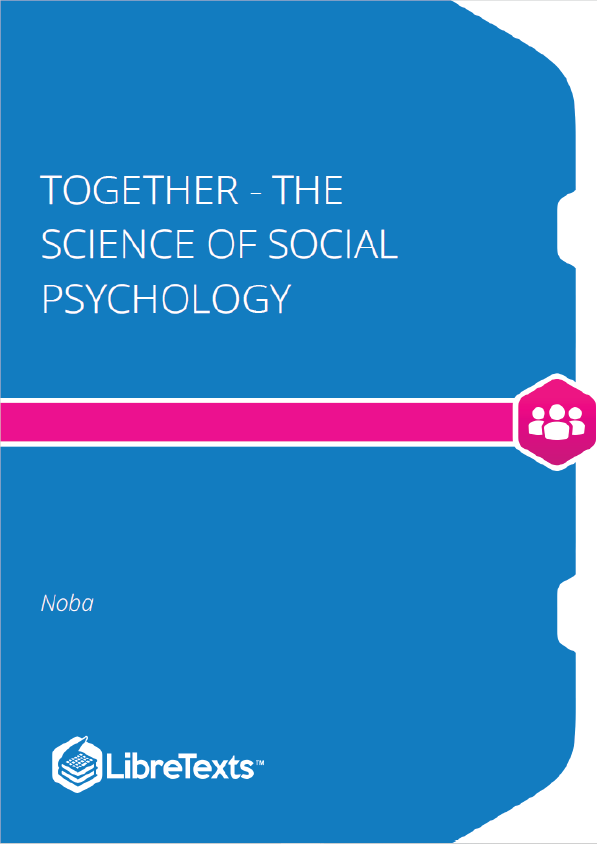This textbook presents core concepts common to introductory social psychology courses. The 8 units include 27 modules covering key social psych topics such as research methods, group processes, social influence, and relationships.
The science of social psychology investigates the ways other people affect our thoughts, feelings, and behaviors. It is an exciting field of study because it is so familiar and relevant to our day-to-day lives. Social psychologists study a wide range of topics that can roughly be grouped into 5 categories: attraction, attitudes, peace & conflict, social influence, and social cognition.
We live in a world where, increasingly, people of all backgrounds have smart phones. In economically developing societies, cellular towers are often less expensive to install than traditional landlines. In many households in industrialized societies, each person has his or her own mobile phone instead of using a shared home phone. As this technology becomes increasingly common, curious researchers have wondered what effect phones might have on relationships. Do you believe that smart phones help foster closer relationships? Or do you believe that smart phones can hinder connections? In a series of studies, researchers have discovered that the mere presence of a mobile phone lying on a table can interfere with relationships. In studies of conversations between both strangers and close friends—conversations occurring in research laboratories and in coffee shops—mobile phones appeared to distract people from connecting with one another. The participants in these studies reported lower conversation quality, lower trust, and lower levels of empathy for the other person (Przybylski & Weinstein, 2013). This is not to discount the usefulness of mobile phones, of course. It is merely a reminder that they are better used in some situations than they are in others. It is also a real-world example of how social psychology can help produce insights about the ways we understand and interact with one another.
Social psychology is the branch of psychological science mainly concerned with understanding how the presence of others affects our thoughts, feelings, and behaviors. Just as clinical psychology focuses on mental disorders and their treatment, and developmental psychology investigates the way people change across their lifespan, social psychology has its own focus. As the name suggests, this science is all about investigating the ways groups function, the costs and benefits of social status, the influences of culture, and all the other psychological processes involving two or more people.
Social psychology is such an exciting science precisely because it tackles issues that are so familiar and so relevant to our everyday life. Humans are “social animals.” Like bees and deer, we live together in groups. Unlike those animals, however, people are unique, in that we care a great deal about our relationships. In fact, a classic study of life stress found that the most stressful events in a person’s life—the death of a spouse, divorce, and going to jail—are so painful because they entail the loss of relationships (Holmes & Rahe, 1967). We spend a huge amount of time thinking about and interacting with other people, and researchers are interested in understanding these thoughts and actions. Giving up a seat on the bus for another person is an example of social psychology. So is disliking a person because he is wearing a shirt with the logo of a rival sports team. Flirting, conforming, arguing, trusting, competing—these are all examples of topics that interest social psychology researchers.











